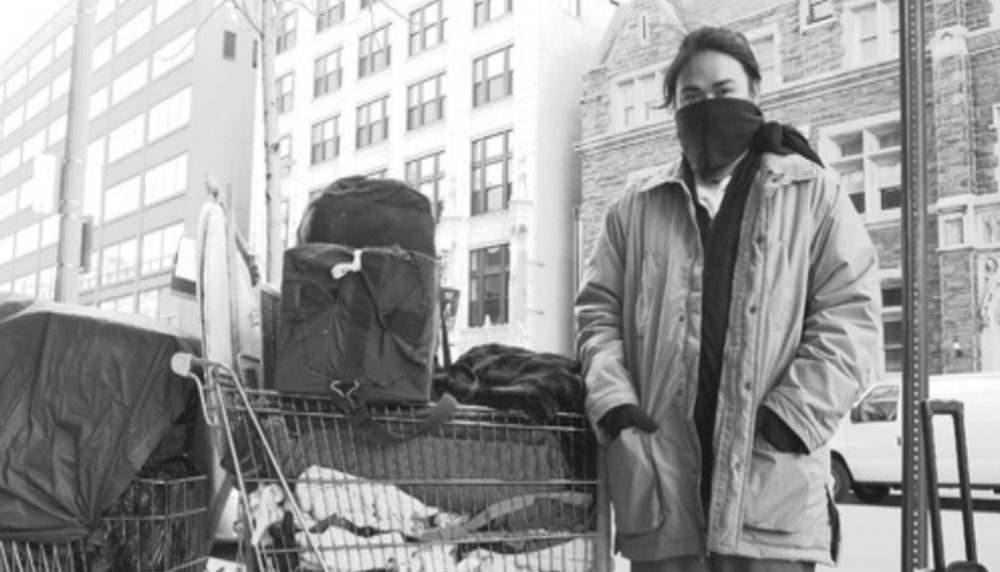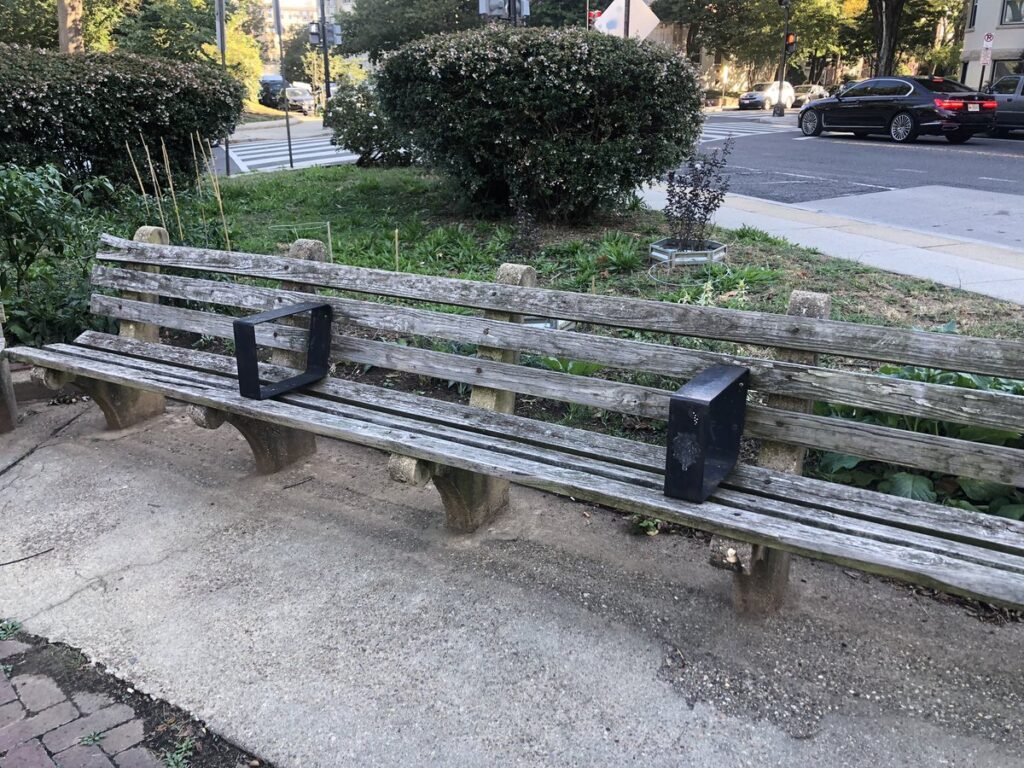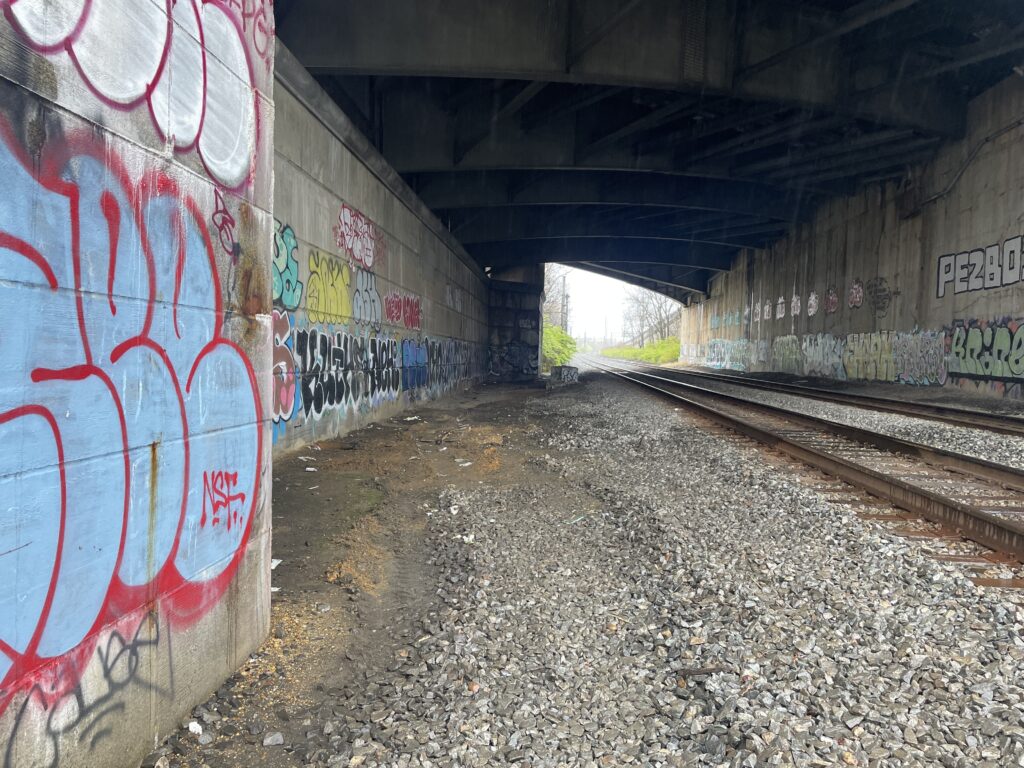New limits on the number of bags that patrons are permitted to bring into District’s public libraries have stirred concerns among homeless people and their advocates.
They worry that the restrictions could discourage the homeless from using libraries, which they say serve as an important resource for poor people seeking jobs and services, and as a refuge from the weather during the daytime hours, when most shelters are closed.
Library officials say the decision to reduce the number of allowed bags from three to two was made in order to alleviate problems with crowding and concerns about safety. No bags larger than carry-on luggage are allowed.
“In neighborhood libraries, bags brought in by people have become obstructive,” explained Pamela Stovall, associate director of the Martin Luther King Jr. Memorial Library, at a recent meeting of the Coalition of Housing and Homeless Organizations (COHHO). “People are taking up seating places and blocking aisles. It has become a safety issue.”
At the meeting, however, some homeless advocates wondered if there might be alternatives to banning the bags, such as designating specific storage rooms, closets or lockers for the luggage.
Stovall said that space limits would prevent such accommodations. Others worried about the fairness library staff will use in enforcing the bag rule, or a longstanding restriction on sleeping in libraries.
“Would a student who has an extra bag, or who is studying for an exam and lays his head down— would he be treated differently than someone who is dirty and smelly?” asked Michael Maupin, of Unity Care.
Stovall said the new bag limit pertains not only to homeless people, but to all library patrons, including an increasing number of passengers waiting for intercity bus services that make stops in front of Martin Luther King Jr. Memorial Library, the city’s main library at G and 10th Streets NW.
As for the ban on napping, she said “I can assure you many people sleep who are not homeless, after lunch. They are asked to get up and go out for a walk. … The penalty for sleeping is that you are asked to go outside.”
Stovall said the city library system is striving to serve its homeless patrons.
“We are working…to train our staff to bring no stereotypes to those who do not have homes. To bring more resources to those who have no homes,” she said.
“We want our libraries to be more open, more comfortable for all our users.” But Street Sense vendor Reginald Black found himself confronted with the new bag limit soon after it went into effect on February 1.
He said he was on his way to a homeless advocacy meeting at the MLK branch with three bags when the guards stopped him and told him one of his bags was too large to bring inside.
Black said he left the bag outside the door and proceeded to enter the library.
The guard complained again, Black said, telling him: “It’s not my job to watch your bag.”
Black resorted to stuffing his bag behind a bush, hoping it would be there when he got back.
He worried about his belongings throughout the whole meeting.
“If you don’t want the bags in the library then a lock box system or stationary guard should be implemented because the homeless are not the only ones affected,” Black concluded.
On another recent day, another library patron with excess baggage tried to deal with the issue as best as he could.
Carlo Laforteza, a 29-year-old with two carts full of bags trying to lock them up to the parking sign in front of the library. A library security guard quickly approached him and informed him that he was not allowed to leave his things there; he must move them to the parking sign at the other end of the library.
Laforteza said that he has never had a real problem with the library; he just leaves his bags outside. This reporter decided to see for herself how the new rules were being implemented.
On one morning this month, she carried three bags; her school backpack, laptop bag and personal bag into the library without being stopped by security. But she wondered what would have happened if she had worn different clothes or carried bigger bags.
Robin Deiner, of the nonprofit D.C. Library Renaissance Project, believes that the whole question of how the general public perceives homelessness is “a dilemma in our society.”
Because they are free, and open to all, libraries are “disproportionately affected” by the needs of homeless people who have limited places to spend their time. Deiner said the majority of library patrons are “uncomfortable with the homeless but they don’t want to see them banned.”
In order to open up a dialogue on the issue, Deiner is planning a symposium entitled “Shelter for the Mind.” The program is scheduled to take place later this year.








